Marlow Rosado: Honoring the Timeless Traditions of Salsa Music
By Susan Frances
 Y2K earmarked a new millennium across the globe, opening people to new opportunities, new leading voices, and new challenges. Marlow Rosado is one of the many leading voices who has emerged through the new millennium, illustrated by his 2013 release Retro, which won the Grammy Award for Best Tropical Album. His skillset to pair the timeless traditions of salsa music with exciting new and legendary performers showcases his multiple talents, extending from being a leader to his creations as a musician and an entertaining live performer.
Y2K earmarked a new millennium across the globe, opening people to new opportunities, new leading voices, and new challenges. Marlow Rosado is one of the many leading voices who has emerged through the new millennium, illustrated by his 2013 release Retro, which won the Grammy Award for Best Tropical Album. His skillset to pair the timeless traditions of salsa music with exciting new and legendary performers showcases his multiple talents, extending from being a leader to his creations as a musician and an entertaining live performer.
He declares, “First and foremost I’m a pianist. I’m a producer, a songwriter, I own a recording studio, and I am a music engineer. But in that very long list of things I do, way at the bottom would be my singing abilities.”
Rosado discusses his 2021 release Los Colores de la Salsa presenting, “This release will be my sixth salsa album.”
A collaboration with vocalist Frankie Negrón, he reveals how he and Negrón came together for the recording, “I met Frankie Negron many years ago. When Frankie lived in New Jersey, every time he traveled to Miami for a performance, my band was his back up. That’s how we became great friends. I always talked about doing a record together.”
He recounts the steps that made the recording a reality for them. “Last year when he moved to Miami, we simply knew it was the time to put this record together. To a certain degree, COVID-19 gave us the opportunity to put this record together because we both found ourselves with a lot of time on our hands, and well, as you can see, we use the time wisely. This is an amazing record and it’s an obvious Marlow Rosado/Frankie Negron collaboration where both of our styles are printed all over the music.”
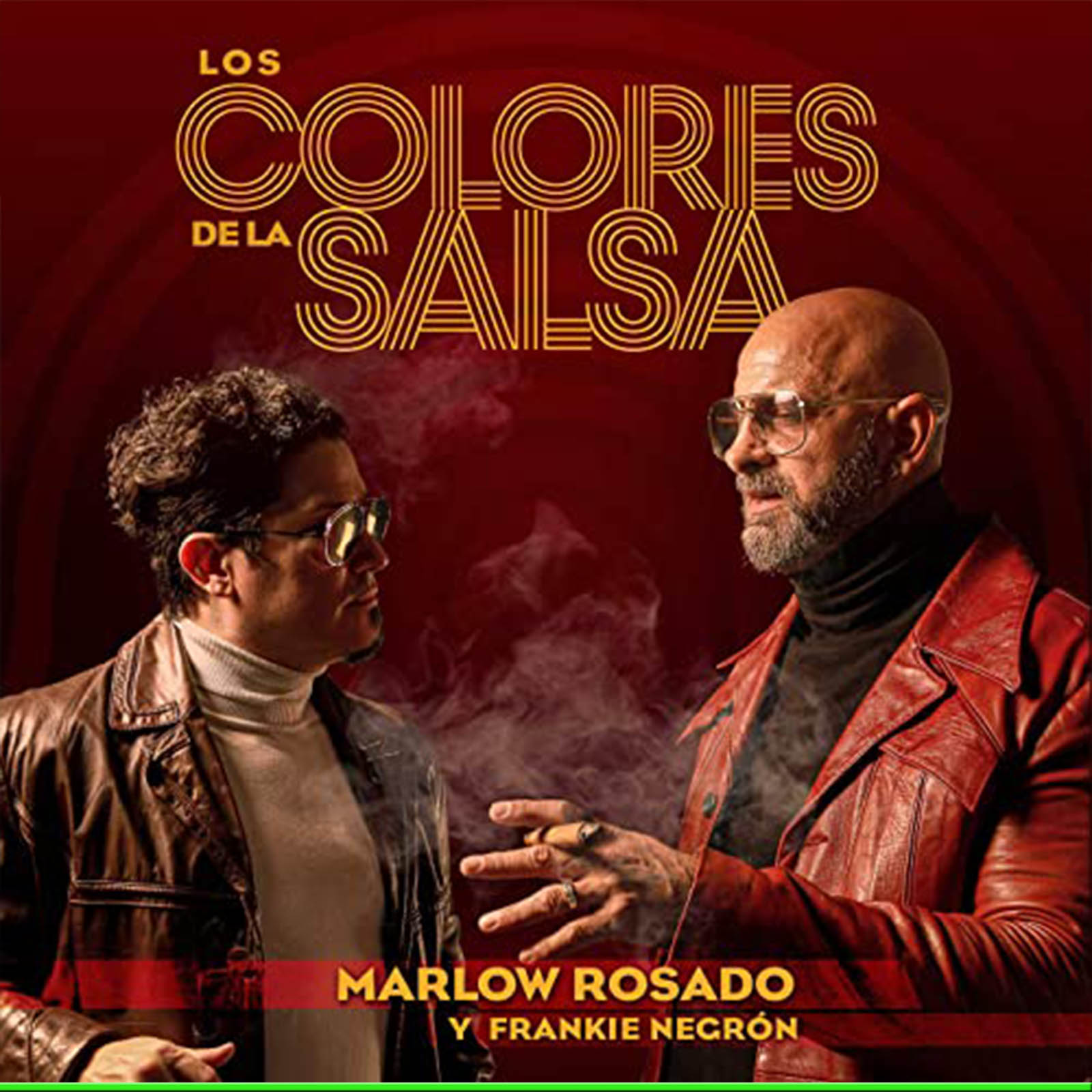 “The vision for Los Colores De La Salsa,” he elaborates, “was simple, Frankie and I spoke about doing a record where we would use his very melodic and romantic voice paired with my very aggressive and ‘salsa dura’ arrangements to create a true hybrid of both styles, which is the reason why we go back to the previous question where this record is a true collaboration between two artists.”
“The vision for Los Colores De La Salsa,” he elaborates, “was simple, Frankie and I spoke about doing a record where we would use his very melodic and romantic voice paired with my very aggressive and ‘salsa dura’ arrangements to create a true hybrid of both styles, which is the reason why we go back to the previous question where this record is a true collaboration between two artists.”
Though several studio musicians play on the recording, Rosado asserts, “Los Colores De La Salsa, unlike my other records, have no features. Frankie Negron and I put this record together as a full collaboration. I produced the music, engineered, played piano and mixed the record. Frankie recorded all the vocals, and together we wrote the songs. There are other writers on the record such as Ray Contreras, but as far as other feature musicians or singers, there are none.”
Nestled in the songlist of the recording is the track “Depende de Ti.” The music has a romantic vibe, though Rosado describes a larger scope as the inspiration for track. “‘Depende de ti Is’ a plea,” he purports, “a sort of call to the younger generation to understand that all did not start with the current big urban movement. That the same elements they are listening to and loving in their new urban music actually had its birth in tropical music, specifically salsa.”
Continuing, he provides, “Within the song, we call names of some of the older classic legendary salsa artists paired in a clever rhyming way with some of the young urban artists while saying ‘it depends on all of us’ to continue our traditions, to continue supporting not only the new but the roots as well. The track is in what we call a ‘guajira’ style with an amazing forward driving horn arrangement. It also includes guitars that generally are not part of this type of music.”
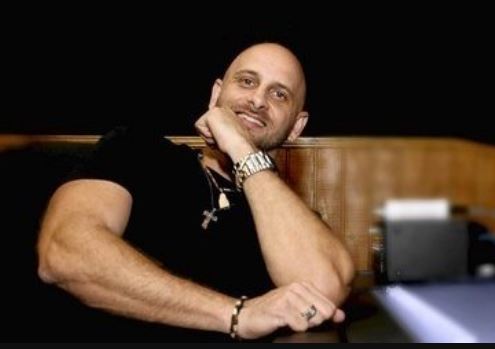 Adding guitars to the salsa milieu is a new contribution, made acceptable by the Y2K’s generation of emerging artists. Rosado’s leadership integrates such new elements into traditional salsa music without changing its sentiment, deeply honored by the culture where he came from in Puerto Rico. His displays his affection for Puerto Rico-based homegrown salsa in the track “Boricuas en Nueva York.”
Adding guitars to the salsa milieu is a new contribution, made acceptable by the Y2K’s generation of emerging artists. Rosado’s leadership integrates such new elements into traditional salsa music without changing its sentiment, deeply honored by the culture where he came from in Puerto Rico. His displays his affection for Puerto Rico-based homegrown salsa in the track “Boricuas en Nueva York.”
He recollects how the song evolved, “‘Boricuas En Nueva York’ was actually conceived on a float at the Puerto Rican day parade two years ago. I was the invited artist on the JetBlue float and had a group of six other musicians with me. Rather than singing full musical arrangements, I took advantage of the fact that the float has a constant movement, which means that every two minutes you have an entirely new audience. I decided to come up with a catchy hook and sing it all the way through.”
“Three hours later” he assures, “by the end of the parade, I decided to come back to Miami, get in the studio and develop that hook into the entire song that it became. The beauty of this song is that although it talks about Puerto Ricans in New York, it really talks about Puerto Ricans all over the United States. How we have arrived in all parts of this country and have made such a difference in the cultural face of each particular area. Puerto Ricans are very proud and everywhere we settle, we bring such a rich culture, customs, and music.”
The rich culture, customs and music that Rosado had been raised with in his birthplace of Puerto Rico is at the root of what motivates him. He reflects, “Being a native Puerto Rican, salsa music has always been part of my culture. It was the ‘IT’ music when I was a child so I grew up listening to it at home in cars, parties just everywhere.”
“When I started to discover my abilities on the piano,” he recalls, “I immediately became attracted with artists such as Larry Harlow,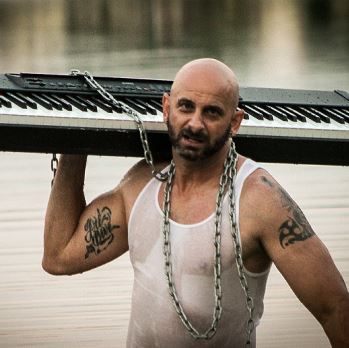 Eddie Palmieri and all those big salsa piano players of those years, I was drawn by the entire Fania All-Stars. I knew that someday I wanted to be just like them. The beauty of all this is that today I have been able to work side by side with those great pianists that were such an influence in my life.”
Eddie Palmieri and all those big salsa piano players of those years, I was drawn by the entire Fania All-Stars. I knew that someday I wanted to be just like them. The beauty of all this is that today I have been able to work side by side with those great pianists that were such an influence in my life.”
He regards fondly, “My story as a piano player is very comical. When I was a child, my mother asked me what I wanted for Christmas, and I asked her for a big yellow Tonka truck ‘a real toy’… On Christmas day, I noticed this big box wrapped under the Christmas tree and, of course, I thought it was my Tonka truck. When I opened it, much to my surprise, it was an organ. I have no idea how my mother went from a Tonka truck to an organ. I feel it was divine intervention.”
“Ever since then,” he cites, “I have been completely abducted by the piano. It took me and never let me go. As far as a singer, I’ve never been much of a singer, I do sing here and there but do not consider myself to be a singer at all. I’m actually pretty horrible at it. I wear many hats.”
Still, audiences will find a microphone attached to his keyboards at any one of his live performances. Playing live was a natural progression for Rosado who shares, “I remember one of my greatest experiences as a young musician was being invited on stage by the late Hector Lavoe. I’ll never forget that. He is one of our legends.”
Playing live had a deep effect on Rosado, who proclaims, “I always loved being on stage with small garage bands as a young musician. Playing music for people gave me a feeling that was indescribable, and quite honestly if you asked me to describe it today, I still can’t, it is absolutely a surreal feeling that I don’t think any musician or artist can explain.”
Moving to Florida, his contributions began to make a significant impact on commercial music, catapulting him as a leader, composer, arranger, and musician. “I love south Florida,” he expresses enthusiastically, “I came here as a child and this is my home. Miami’s music culture is amazing since there are people here from all parts of Latin America. I think my music is a reflection of every Latin culture present in our city. The Puerto Rican influence infused with the Cuban influence has given me what I consider to be my sound.”
Augmenting his intrinsic talent for playing, composing and performing, Rosado pursued a masters degree in jazz education. He explains why he took this step. “I studied jazz education because I knew that I needed a degree to fall back on. As we all know,” he assesses, “the music industry could be very unpredictable. I became a school teacher and taught elementary school for 10 years. Eventually I built enough of a name to walk away from the classroom and dedicate my life fully to music.”
 “As far as how my studies have influenced my writing of scores,” he broaches, “I think that’s pretty obvious that having obtained a college degree in this art will give me the ability to write music by using real musical knowledge in a world where most music is being done by beat machines and computer programming. I still take much pride in being able to sit with a pencil and score paper and actually write notes that musicians will read and play.”
“As far as how my studies have influenced my writing of scores,” he broaches, “I think that’s pretty obvious that having obtained a college degree in this art will give me the ability to write music by using real musical knowledge in a world where most music is being done by beat machines and computer programming. I still take much pride in being able to sit with a pencil and score paper and actually write notes that musicians will read and play.”
In hindsight, he comments about his development as a recording artist, “I think that as the years go by, I say more with a lot less.”
“As a piano player,” he stipulates, “I have stopped trying to do these hundred miles per hour runs in my solos, but feel that my solos are a lot more melodic and say so much more than they used to in the past. The same applies to my musical arrangements and my lyrical content. I have a lot more fun producing now than I did in the past. Where as before, I was 75% on stage and 25% in the studio.”
“Today,” he ascertains, “I feel I have divided my time more equal between the studio and the stage. In other words, I think I have been moving much faster into the producing space. I see music more as a business now, which is the reason why I recently open the new record label with Latin industry giant Angel Carrasco. Hopefully, moving further into that direction.”
Returning to his 2021 release Los Colores De La Salsa, Rosado welcomes the opportunity to bring some of the tracks to the live stage as he proposes, “Every time I release a record, I select 3 to 4 of the top songs from the record and absolutely rehearse them with the band and include them as part of my new repertory so the answer is yes, I do plan on performing at least 3 to 4 tracks from this record. But I’m not gonna lie, I do love to flex my composing and arranging skills.”
While considering which tracks from Los Colores De La Salsa to add to his live shows, he is also contemplating and working on new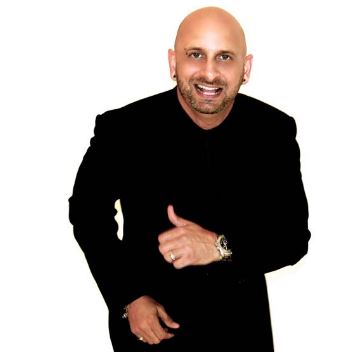 material as he advances, “My influences in jazz are now going to really come through as I am about to release my first Latin jazz album which includes 10 tracks and some of the feature artists include the legendary Chucho Valdez.”‘
material as he advances, “My influences in jazz are now going to really come through as I am about to release my first Latin jazz album which includes 10 tracks and some of the feature artists include the legendary Chucho Valdez.”‘
Marlow Rosado’s skillset complimented by his academic studies in jazz education continues to propel his songwriting, recording and performing endeavors. A Y2K discovery, Rosado pairs the timeless traditions of salsa music with exciting new and legendary performers. He remembers his roots while continuing to nurture new sprouts that burgeoning Y2K generations embrace and can agree make a significant impact on commercial music.
About Susan Frances:
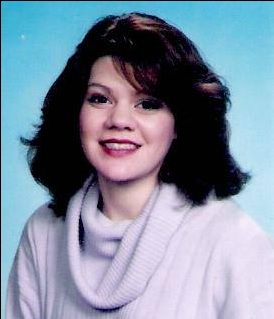 Born in Brooklyn, New York and raised in eastern Long Island, I always enjoyed writing and made several contributions to my high school literary magazine, The Lion’s Pen. Influenced by writers of epic novels including Colleen McCullough and James Clavell, I gravitated to creative writing. After graduating from New York University with a BA in Liberal Arts, I tried my hand at conventional jobs but always returned to creative writing. Since 1998, I have been a freelance writer and have over three thousand articles to various e-zines including: Jazz Times, Blogcritics, Yahoo Voices, Goodreads.com, Authors and Books (books.wiseto.com), TheReadingRoom.com, Amazon.com, Epinions.com, Fictiondb.com, LibraryThing.com, BTS emag, BarnesandNoble.com, RomanticHistoricalReviews.com, AReCafe.com, Hybrid Magazine, and BookDepository.com. In 2013 and 2014, I was a judge in the Orange Rose Writing Competition sponsored by the Orange County chapter of the Romance Writers of America located in Brea, California.
Born in Brooklyn, New York and raised in eastern Long Island, I always enjoyed writing and made several contributions to my high school literary magazine, The Lion’s Pen. Influenced by writers of epic novels including Colleen McCullough and James Clavell, I gravitated to creative writing. After graduating from New York University with a BA in Liberal Arts, I tried my hand at conventional jobs but always returned to creative writing. Since 1998, I have been a freelance writer and have over three thousand articles to various e-zines including: Jazz Times, Blogcritics, Yahoo Voices, Goodreads.com, Authors and Books (books.wiseto.com), TheReadingRoom.com, Amazon.com, Epinions.com, Fictiondb.com, LibraryThing.com, BTS emag, BarnesandNoble.com, RomanticHistoricalReviews.com, AReCafe.com, Hybrid Magazine, and BookDepository.com. In 2013 and 2014, I was a judge in the Orange Rose Writing Competition sponsored by the Orange County chapter of the Romance Writers of America located in Brea, California.


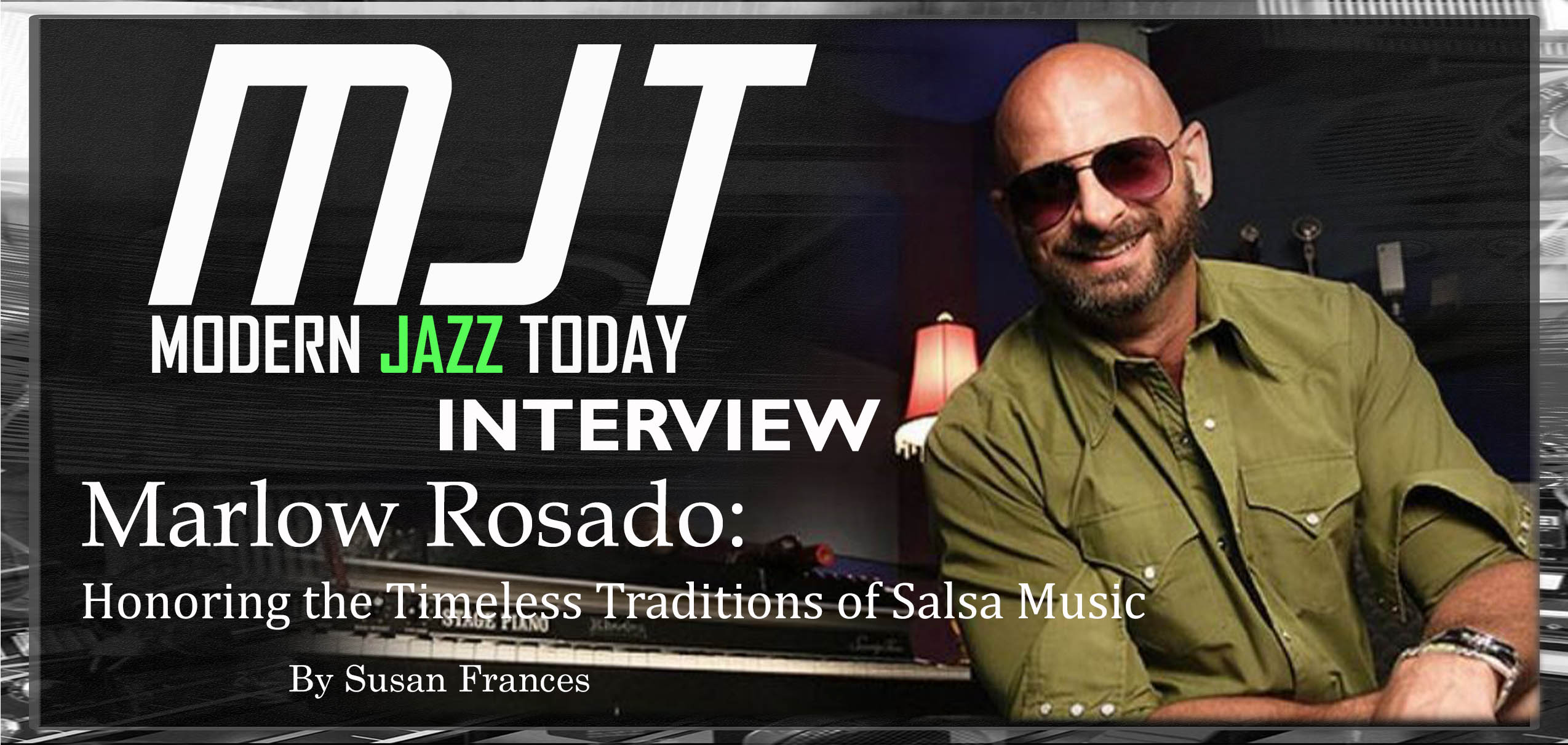


No Comments